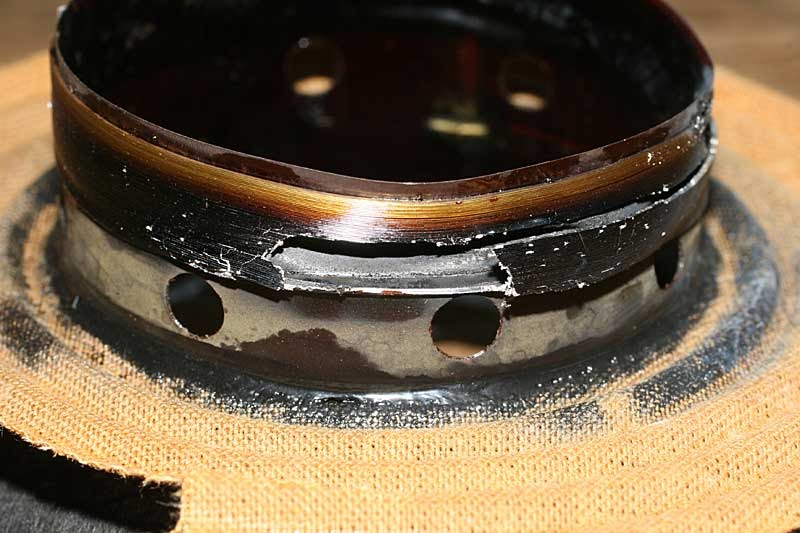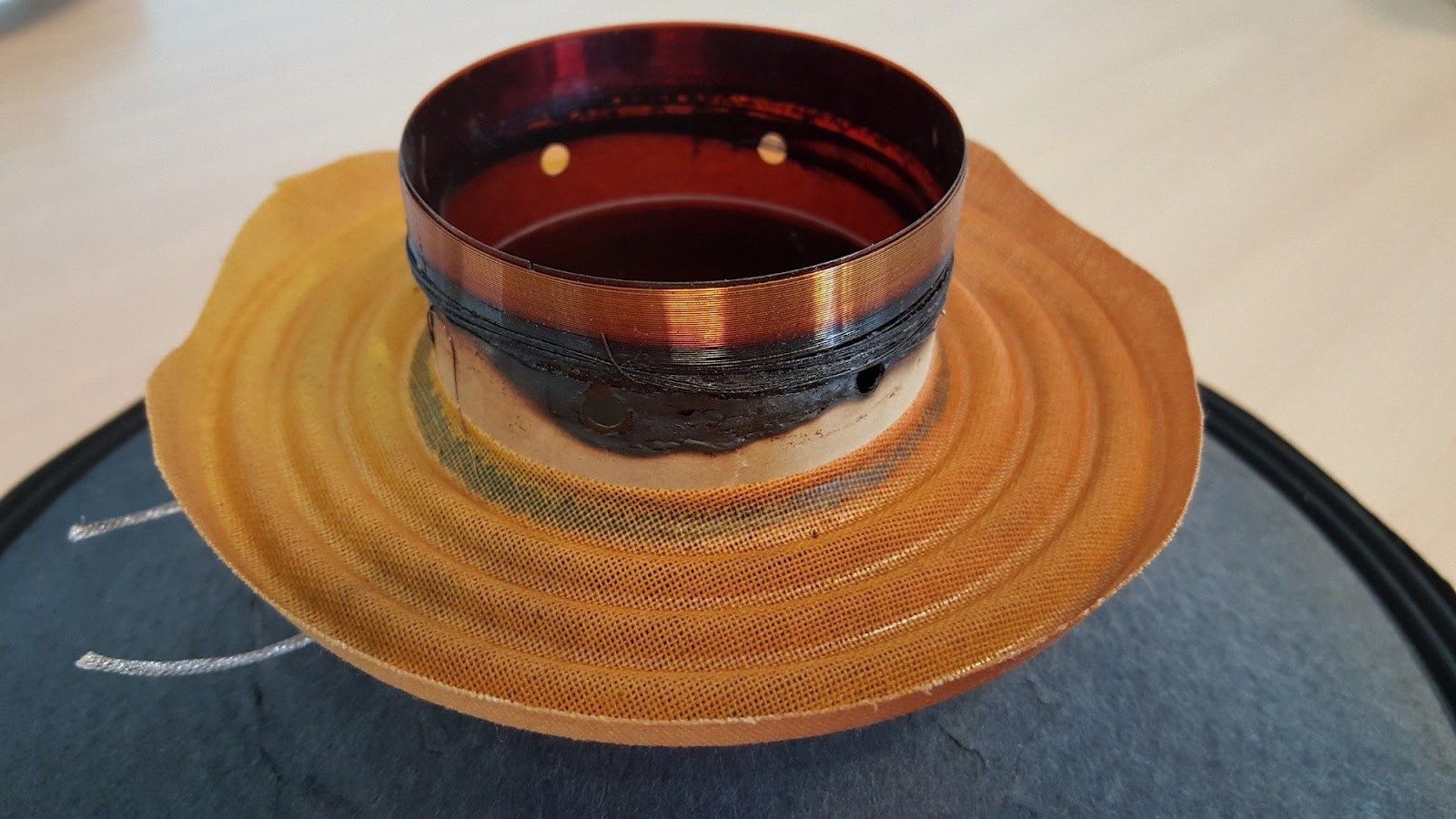Is my speaker blown? A question that is regularly asked. It's high time we delved in and explained this a bit more. First of all, we are of course very sorry that you are having problems with your speaker. After all, we assume that you've come across this blog since occurring such a problem.
What do we mean by 'blown'?
A blown speaker is a speaker that has become defective due to improper use. In most cases, this is because the volume has been turned up too far for a long time or because your amplifier and speaker are not a good match. The latter can of course only be the case with passive speakers, because you still need a separate amplifier. Active speakers are speakers that have a built-in amplifier, so that match is always good anyway.
How do you recognize a blown speaker?
If you have blown the speaker, you will often hear it immediately. Instead of a pure sound, you'll hear a distorted or even crackling sound that does not disappear even at a lower volume. It could also be the case that your speaker is blown if you can't hear anything at all.
How do you prevent a blown speaker?
If you've searched for "blown speakers" and you're reading this blog, it's probably too late. Nevertheless, here's how you can prevent this from happening to you.
If you set your speaker volume too high that it doesn't play nicely with the rest of your system, your speaker will start to crack or deform - this is a sure-fire sign that your speaker is on its last legs. If you hear distortion, turn the volume down as quickly as possible until the distortion is gone. If the distortion remains audible even at a lower volume, then you are probably already too late and damage has already set in to your speaker.
What can I do to reduce the chance?
It starts with having the right combination of speakers and amplifier. As strange as it sounds, a low-powered amplifier can blow up your speakers. A low-powered amplifier is more likely to clip, which means that your amplifier sends a distorted signal to the speakers and because the speaker cannot deal with this disturbed signal, it'll blow up.
Now you might think that you have to instead connect a high-powered amplifier, but that is not entirely true. In another case, an amplifier that is too high powered will be certain to get everything out of your speaker, but if you take it too far, you may send too much power into the speaker, whereby it can't handle it, resulting in the speaker too blowing up.
What gets damaged if you blow up a speaker?
Of course, you shouldn't take "blowing up" a speaker too literally. Blowing up a speaker means that the coil is damaged. It is often the case that the coil becomes so hot due to the disturbed signal or the excessive power that it literally burns.

How do you check if the speaker is blown?
It is important that you first contact the company where you bought the speaker(s) before performing the test below. Can they not help you further or do you no longer know where the speaker was purchased? Then the following steps may just help to instead draw a conclusion:
Before you start, note:
- Active speakers: Disconnect the speaker from the mains (unplug the device).
- Passive speakers: Disconnect the speaker from the amplifier.
Then follow the steps below:
- Lay the speaker on its back.
- Take a screwdriver and remove the grill in front of the woofer.
- Spread your fingers over the woofer as shown in the images below.
- Very gently press the woofer about an inch and then release.
- What do you feel and what do you hear?

Is the speaker blown or is there something else going on?
If you have carefully gone through the above steps and now anxiously waiting for the result, check if:
- You hear a scraping or scratching sound: this normally indicates the coil is rubbing against the magnet and there is a good chance that your speaker is blown.
- You can press down the woofer without actually applying force. Do you have to use a little force to press it in or is it completely stuck? If that is the case, your woofer is most likely blown.
Despite the fact that a scraping sound or a hard-to-press speaker mostly offers the truth as to the verdict of your speaker, there is only one way to truly determine whether your speaker has blown and that is by cutting open the speaker. Only then can you look at the coil and see if it is burned.

Can a blown speaker be repaired?
No, in principle that is not possible. If you've blown up your speaker, your only solution is to completely replace the woofer or tweeter. Please contact the company where you bought the speaker to see if this speaker component is available separately.
Incidentally, in some cases, it is possible to repair a blown speaker, this is called reconing. However, before we delve into that, reconing is only used for very expensive speakers where investing in such a solution will pay off. Repair is therefore not possible for most speakers and the entire woofer simply has to be replaced.
What about warranty?
Unfortunately, blowing up a speaker is never covered by the warranty, this is because the damage was caused by improper use of the speaker. This can be compared to damaging a car that you have just bought. For example, you shake the car salesman's hand and proudly step into your new car. When leaving the garage you drive past a pole and end up with a thick scratch as a result. As annoying as this may be, the damage cannot be blamed on the car salesman and will therefore not be covered by any warranty.
The same is true with a blown speaker. The costs of any repair or replacement of a blown speaker are therefore always at your own expense. Have you bought the speaker from ElectroMarket? Feel free to reach out to our customer service team to see what solutions we can offer you.
To avoid blowing your speaker, remember these simple points:
Make sure your speaker sound is not distorted
- Do you hear distortion? Always turn the volume down (immediately!) until the distortion is gone.
- Does your amp have clip lights? These may light up very briefly to the beat of the bass (you should think more in the direction of a quarter of a second) but certainly not remain on for long. A second is already too long. The lighting up of the clip light indicates that the amplifier is already sending a disturbed signal to the speaker(s) at that moment.

